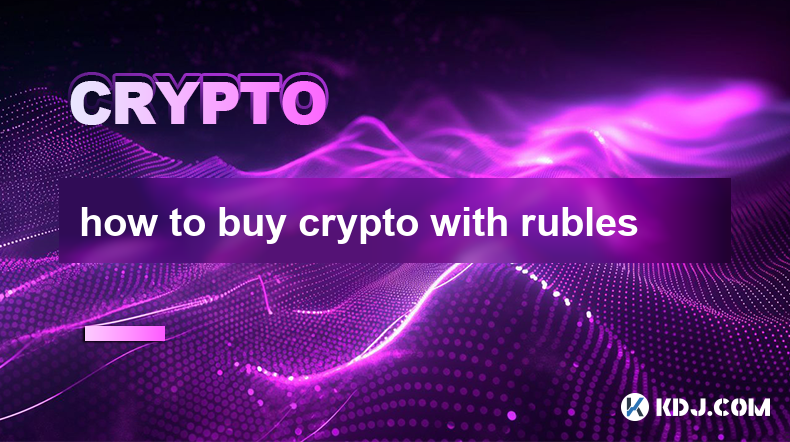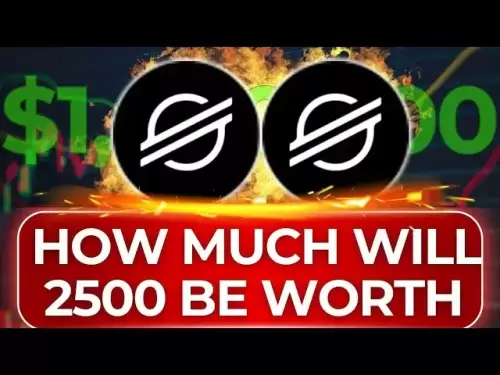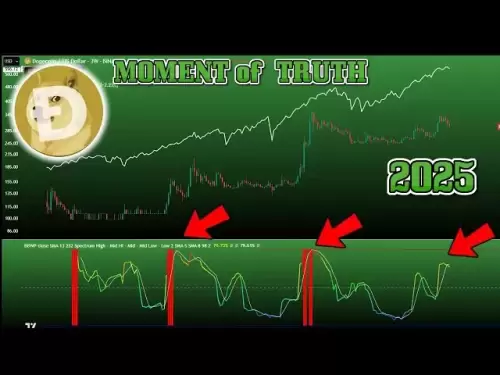-
 Bitcoin
Bitcoin $102,845.0810
-0.51% -
 Ethereum
Ethereum $2,360.7115
-5.05% -
 Tether USDt
Tether USDt $1.0000
-0.02% -
 XRP
XRP $2.3322
-1.56% -
 BNB
BNB $635.1312
-1.30% -
 Solana
Solana $163.0761
-3.11% -
 USDC
USDC $0.9997
-0.02% -
 Dogecoin
Dogecoin $0.2170
0.09% -
 Cardano
Cardano $0.7206
-3.32% -
 TRON
TRON $0.2609
-4.01% -
 Sui
Sui $3.7282
-1.18% -
 Chainlink
Chainlink $15.0074
-2.98% -
 Avalanche
Avalanche $21.5426
-3.98% -
 Stellar
Stellar $0.2783
-3.36% -
 Hyperliquid
Hyperliquid $25.6559
-2.34% -
 Shiba Inu
Shiba Inu $0.0...01416
-1.40% -
 UNUS SED LEO
UNUS SED LEO $8.6486
0.25% -
 Hedera
Hedera $0.1876
-2.34% -
 Bitcoin Cash
Bitcoin Cash $388.0093
-2.38% -
 Toncoin
Toncoin $3.0178
-2.21% -
 Litecoin
Litecoin $95.1816
-2.08% -
 Polkadot
Polkadot $4.4777
-3.74% -
 Monero
Monero $342.8134
1.00% -
 Bitget Token
Bitget Token $5.0914
0.22% -
 Pepe
Pepe $0.0...01275
2.97% -
 Dai
Dai $0.9998
-0.01% -
 Pi
Pi $0.7285
0.99% -
 Ethena USDe
Ethena USDe $1.0005
-0.02% -
 Uniswap
Uniswap $5.6757
-1.80% -
 Bittensor
Bittensor $398.6696
-6.02%
how to buy crypto with rubles
To purchase cryptocurrency in Russia, it's essential to understand the regulatory landscape, choose a reputable exchange, fund your account with Rubles using a reliable payment method, place a crypto order based on your desired purchase, and securely store your digital assets in a private wallet.
Jan 29, 2025 at 09:49 pm

Key Points
- Understanding Regulations and Legal Considerations
- Choosing a Suitable Exchange
- Funding Your Account with Rubles
- Placing a Crypto Order
- Storing Your Crypto in a Secure Wallet
Step-by-Step Guide
1. Understand Regulations and Legal Considerations
Before purchasing cryptocurrency, it's essential to be aware of the regulatory landscape in Russia. While the Central Bank of Russia has taken steps to regulate cryptocurrencies, the legal framework is still evolving. It's advisable to consult with a legal expert to fully understand the applicable laws and regulations.
2. Choosing a Suitable Exchange
Select a reputable cryptocurrency exchange that supports Ruble deposits and offers the desired cryptocurrencies. Some popular options include Binance, OKX, and KuCoin. Consider factors such as exchange rates, fees, security measures, and customer support when making your choice.
3. Funding Your Account with Rubles
Most exchanges allow you to deposit Rubles via various methods, including wire transfer, credit/debit card, or popular payment processors like Qiwi and Yandex Money. Choose the method that best suits your needs and follow the exchange's instructions carefully.
4. Placing a Crypto Order
Once your account is funded, you can place an order to buy cryptocurrency. Select the desired cryptocurrency, indicate the amount you wish to purchase, and specify the type of order you want to place (e.g., market order, limit order). Review the order details carefully before submitting it.
5. Storing Your Crypto in a Secure Wallet
After purchasing cryptocurrency, it's crucial to store it securely in a private wallet. Exchanges generally provide built-in storage, but for added security and control, consider using a hardware wallet like Trezor or Ledger. Hardware wallets offer offline, cold storage, safeguarding your crypto from online threats.
FAQs
1. Is it safe to buy crypto in Russia?
The legality of buying crypto varies depending on the specific jurisdiction. While the Central Bank of Russia has taken steps to regulate cryptocurrencies, it's recommended to consult with a legal expert for further guidance.
2. Which exchanges accept Rubles?
Binance, OKX, and KuCoin are popular exchanges that allow deposits in Rubles.
3. What payment methods are available for funding an account with Rubles?
Wire transfer, credit/debit card, and payment processors like Qiwi and Yandex Money.
4. Do I need to verify my identity when buying crypto?
Yes, most exchanges require identity verification to comply with anti-money laundering regulations.
5. What is a hardware wallet?
A hardware wallet is a physical device that stores cryptocurrency offline, enhancing security and reducing the risk of online theft.
Disclaimer:info@kdj.com
The information provided is not trading advice. kdj.com does not assume any responsibility for any investments made based on the information provided in this article. Cryptocurrencies are highly volatile and it is highly recommended that you invest with caution after thorough research!
If you believe that the content used on this website infringes your copyright, please contact us immediately (info@kdj.com) and we will delete it promptly.
- Remittance Tax May Spur Crypto Adoption Resurgence
- 2025-05-19 13:15:13
- Leading cryptocurrencies rallied sharply on Sunday as investors awaited new all-time highs for Bitcoin.
- 2025-05-19 13:15:13
- HBAR May Be in the Early Stages of a Larger Bullish Movement
- 2025-05-19 13:10:13
- Raydium LaunchLab created more than 119,000 tokens, with a graduation rate of only 0.21%
- 2025-05-19 13:10:13
- XRP Will Officially Be Listed on the Chicago Mercantile Exchange (CME) Futures Platform Starting May 19, 2025
- 2025-05-19 13:05:13
- The Gig-Incentive IDO Landscape
- 2025-05-19 13:05:13
Related knowledge

What is Ethereum’s Slashing mechanism and how to punish malicious behavior?
Feb 20,2025 at 03:08am
Key PointsOverview of slashingDifferent types of slashing in EthereumIncentives and consequences of slashingIdentifying and reporting slashed validatorsOngoing discussions and potential improvementsEthereum's Slashing Mechanism: Punishing Malicious BehaviorEthereum's slashing mechanism is an essential tool for ensuring network security and punishing mal...

What is the verifier node of Ethereum and how to become a verifier?
Feb 19,2025 at 06:00pm
The Verifier Node of Ethereum: A Comprehensive GuideKey Points:What is a Verifier Node?How to Become a Verifier NodeResponsibilities and Rewards of a Verifier NodeMinimum Requirements for Becoming a Verifier NodePotential Difficulties in Running a Verifier Node1. What is a Verifier Node?A Verifier Node is an independent entity on the Ethereum network th...

What is Ethereum’s staking, and how to participate and earn money?
Feb 19,2025 at 04:37pm
Key Points:Understanding Ethereum's Staking MechanismSteps to Participate in StakingBenefits and Rewards of StakingSecurity and Risk ConsiderationsTechnical Requirements and Hardware OptionsPotential Challenges and Troubleshooting TipsFAQs on Ethereum StakingWhat is Ethereum's Staking?Proof-of-Stake (PoS) is a consensus mechanism used in blockchain netw...

What is Ethereum’s DAO (Decentralized Autonomous Organization) and how does it work?
Feb 20,2025 at 03:12am
Key PointsDefinition and Structure of a DAOGovernance and Decision-Making in DAOsBenefits and Use Cases of DAOsChallenges and Limitations of DAOsWhat is Ethereum's DAO (Decentralized Autonomous Organization) and How Does It Work?Definition and Structure of a DAOA Decentralized Autonomous Organization (DAO) is an innovative governance and management fram...

What is Ethereum's multi-signature wallet and how to improve security?
Feb 20,2025 at 02:18pm
Key Points:Understanding the Concept of a Multi-Signature WalletBenefits and Drawbacks of Multisig WalletsRequirements for Setting Up a Multisig WalletStep-by-Step Guide to Generating a Multisig WalletImplementing Strategies for Enhanced Security1. Understanding the Concept of a Multi-Signature WalletA multi-signature (multisig) wallet in the Ethereum e...

What is Ethereum's oracle and how to provide data for smart contracts?
Feb 21,2025 at 01:30am
Key Points:Understanding the concept of oracles in EthereumExploring different types of oraclesDetailed guide on how to provide data for smart contractsAddressing potential challenges and considerationsWhat is Ethereum's Oracle?Oracles are crucial components in the Ethereum ecosystem, enabling smart contracts to access real-world data and off-chain even...

What is Ethereum’s Slashing mechanism and how to punish malicious behavior?
Feb 20,2025 at 03:08am
Key PointsOverview of slashingDifferent types of slashing in EthereumIncentives and consequences of slashingIdentifying and reporting slashed validatorsOngoing discussions and potential improvementsEthereum's Slashing Mechanism: Punishing Malicious BehaviorEthereum's slashing mechanism is an essential tool for ensuring network security and punishing mal...

What is the verifier node of Ethereum and how to become a verifier?
Feb 19,2025 at 06:00pm
The Verifier Node of Ethereum: A Comprehensive GuideKey Points:What is a Verifier Node?How to Become a Verifier NodeResponsibilities and Rewards of a Verifier NodeMinimum Requirements for Becoming a Verifier NodePotential Difficulties in Running a Verifier Node1. What is a Verifier Node?A Verifier Node is an independent entity on the Ethereum network th...

What is Ethereum’s staking, and how to participate and earn money?
Feb 19,2025 at 04:37pm
Key Points:Understanding Ethereum's Staking MechanismSteps to Participate in StakingBenefits and Rewards of StakingSecurity and Risk ConsiderationsTechnical Requirements and Hardware OptionsPotential Challenges and Troubleshooting TipsFAQs on Ethereum StakingWhat is Ethereum's Staking?Proof-of-Stake (PoS) is a consensus mechanism used in blockchain netw...

What is Ethereum’s DAO (Decentralized Autonomous Organization) and how does it work?
Feb 20,2025 at 03:12am
Key PointsDefinition and Structure of a DAOGovernance and Decision-Making in DAOsBenefits and Use Cases of DAOsChallenges and Limitations of DAOsWhat is Ethereum's DAO (Decentralized Autonomous Organization) and How Does It Work?Definition and Structure of a DAOA Decentralized Autonomous Organization (DAO) is an innovative governance and management fram...

What is Ethereum's multi-signature wallet and how to improve security?
Feb 20,2025 at 02:18pm
Key Points:Understanding the Concept of a Multi-Signature WalletBenefits and Drawbacks of Multisig WalletsRequirements for Setting Up a Multisig WalletStep-by-Step Guide to Generating a Multisig WalletImplementing Strategies for Enhanced Security1. Understanding the Concept of a Multi-Signature WalletA multi-signature (multisig) wallet in the Ethereum e...

What is Ethereum's oracle and how to provide data for smart contracts?
Feb 21,2025 at 01:30am
Key Points:Understanding the concept of oracles in EthereumExploring different types of oraclesDetailed guide on how to provide data for smart contractsAddressing potential challenges and considerationsWhat is Ethereum's Oracle?Oracles are crucial components in the Ethereum ecosystem, enabling smart contracts to access real-world data and off-chain even...
See all articles
























































































